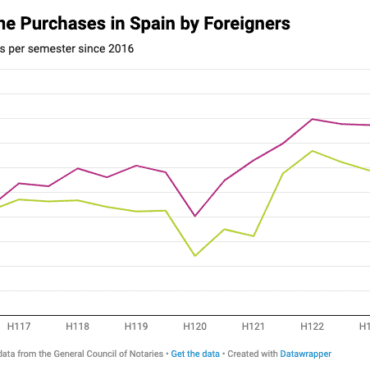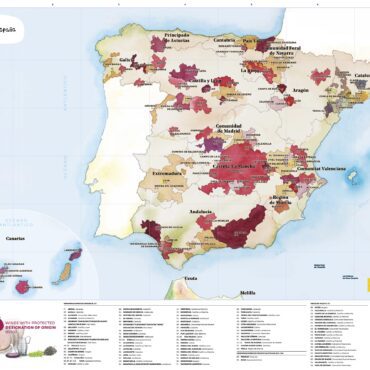-
 play_arrow
play_arrow
BayRadio Listen Live Broadcasting in Spain

Parliament have voted to extend the state of alarm here for another 15 days, maintaining the emergency powers for the government to deal with the ongoing coronavirus crisis.
Prime Minister Pedro Sánchez, of the Socialist PSOE Party, first implemented the measure on March 14.
Sánchez’s request for an additional period until May 24 was met with growing objections from the opposition, and the prime minister, who heads a minority government in coalition with junior partner Unidas Podemos, was forced into last-minute negotiations to secure the simple majority of more yes than no votes.
Sanchez told the house, “We have managed a partial victory against the virus with everyone making a sacrifice. We are not here by chance. Nobody gets it right all the time in such an unprecedented situation but lifting the state of alarm now would be an absolute mistake.”
The government offered concessions to the center-right Ciudadanos (Citizens) party and to the Basque Nationalist Party (PNV) to ensure a successful vote even though the main opposition group, the Popular Party (PP), finally decided to withdraw its earlier support and abstain.
Sánchez, also announced that the country will have an official period of mourning for its Covid-19 victims “when most of the country is in Phase 1 of the deescalation.
Partido Popular leader Pablo Casado, whose party abstained from the vote, was highly critical of the government, telling the PM that “the exceptional situation does not allow for a constitutional dictatorship.”
The conservative leader accused Sánchez of lying about the causes of the severe impact of the Covid-19 disease in Spain and of manipulating its economic and social consequences.
He said the PP do not support the overstepping of legal boundaries and said his party would not support a further extension to the emergency powers in two weeks time.
Vox leader Santiago Abascal struck a similar note, warning Sánchez that he will have to prepare for class action suits because of his mishandling of the crisis and suggesting that the prime minister might soon face a vote of no confidence in Parliament.
The Basque Nationalist Party (PNV), which has six representatives in Congress, announced on Wednesday morning that it would vote in favor of a fourth 15-day period, in exchange for a pledge from Sánchez that decisions on deescalation will be made in partnership with regional authorities, not decreed from Madrid.
The Socialist leader also clinched a deal with Ciudadanos leader Inés Arrimadas that included political and economic concessions, including weekly meetings to discuss deescalation measures and negotiating financial aid for self-employed workers once the state of alarm is over. Ciudadanos holds 10 seats in Congress.
The Catalan Republican Left (ERC), which was instrumental in getting Sánchez back into the prime minister’s office and which had so far supported the extensions, decided to vote against rather than abstain this time around, as did two other separatist parties, Together for Catalonia (JxCat) and Popular Unity Candidacy (CUP).
Gabriel Rufián of ERC said that his party no longer supported a renewal of emergency powers because “there are no health criteria to justify this state of alarm under a single command in Madrid, which does not take into account crucial territorial information. The territories should make decisions, out of pure efficiency. We say no to a sine die extension to not having rights.”
In a country that has been particularly hard hit by the coronavirus crisis, with 25,857 officially recognized deaths as of Wednesday, the government had been framing the situation as a choice between “state of alarm or chaos.”
“The only tool to limit mobility and fight against Covid-19 is the extension of the state of alarm,” insisted Sánchez in the Senate on Tuesday.
But some opposition groups were arguing that there are existing laws that could be used instead to retain central command over healthcare and curtail citizen mobility during the country’s ongoing phased deescalation.
There have also been calls for Sánchez to disassociate coronavirus relief measures from the state of alarm. Legal experts had warned that if the extension had failed in Congress, it could have meant that almost all the measures the government has introduced to address the coronavirus crisis would be immediately dismantled on May 9.
Spain’s system of two-week periods differs from the methods used by other European countries to implement their own emergency legislation. Italy decreed a state of emergency on January 31 for a six-month period, and France introduced it on March 23 for the space of two months.
Written by: BayRadio News
Similar posts
Recent Posts
- Robotic Surgery for Prostate Cancer: What Is Radical Prostatectomy and How Does the Da Vinci Robot Improve It
- What Is Fibromyalgia? Symptoms and Treatments of an Invisible Illness That Requires Specialized Attention
- AMASVISTA Glass: 10 reasons to choose SUNFLEX glass curtains
- Robotic Surgery, Immunotherapy and Comprehensive Care Take Centre Stage at Pancreatic Cancer Conference at Quirónsalud Torrevieja
- Robotic Surgery Against Ovarian Cancer: Greater Precision, Less Pain and Faster Recovery

Ctra. Cabo La Nao, CC La Nao, Local 6 03730 Javea, Alicante, Spain
Advertise with us
Do you have a business in Spain? Do you provide a service to the expat community in Spain? Would you like your message to reach over 500.000 people on a weekly basis?
BayRadio is a community orientated radio station offering fantastic content to our many listeners and followers across our various platforms. Contact us now and find out what Bay can do for you!
Our business is helping your business grow.
BAY RADIO S.L. © 2024. ALL RIGHTS RESERVED. WEB DESIGN BY MEDIANIC







